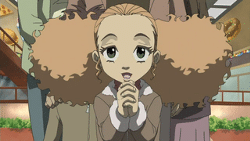by Raizel Liebler
One of the earliest papers on fandom Keidra and I ever presented (at MIT’s Media in Transition 5) was about the difficulties in determining the line between canon and fandom.*
“Canon,” from a pop culture standpoint, is defined as the official storylines and back stories invented by the creators of television shows, movies, and books. “Fanon” is the ideas and concepts that fan communities have collectively decided are part of an accepted storyline or character interpretation.

Is the original author/creator write fanfiction/fanworks based on their original work — canon? fanon? both? neither?
Thanks to licensing fanfiction through Amazon Kindle Worlds we have at least one example to figure this out — the original author of The Vampire Diaries is now writing licensed fanfiction of her earlier works. LJ Smith never owned the copyright to her earlier works, instead she wrote contractually, either as a work-for-hire employee of the copyright owner — or piecemeal paid for each book produced. (Keidra has previously written on TLF about Kindle Worlds — Fanfiction For Sale: Could Kindle Worlds keep dormant fandoms alive?)
But we collectively have homage for authors for their creation — look to the ways that the comics creators of many of the most popular superhero characters are viewed by the public as in the right in lawsuits to retain rights or profits in their creations. Those creative forces are seen by the public as the “real” owners of those characters — not their actual corporate owners.

the L.J. Smith-authored The Return: Nightfall, [was] perhaps the oddest 608 pages ever marketed to young girls, even giving the nutso Twilight: Breaking Dawn .. storyline a run for its money.
But the issue of “what counts” and what doesn’t will continue to occur. And who decides what counts?
In Batman Unmasked — released in 2001 before the rebooted (and now re-rebooted) Batman movie franchise, Will Booker discusses all of the official Batman products through a critical lens. So much of the official releases are discounted by fans — but yet the core Batman-ness holds true. Otherwise, it wouldn’t be possible for both Batkid and the Arkham Origins video game to exist and be popularly known at the same time. The fandom has even decided who are the “real” voices of both Batman and the Joker, leaving those productions without Kevin Conroy and Mark Hamill as less worthy.
The removal of Aaron McGruder from the fourth season of the Boondocks on Cartoon Network is another recent example of the difficulty for fans to figure out what “counts” and what doesn’t. As fans of Community (during last season), fans of Gargoyles, and fans of Gilmore Girls confronted before — does a show continue to be canon when the major creative force behind it leaves?
Does whether some cultural production count as canon or fanon matter whether it is officially authorized? That doesn’t appear to be the line, so what is it? It seems like for most works, for something to be canon, it needs to be produced by the original/real source and be of high enough quality and stand the test of some unknown amount of time. Based on this, it is possible that the new “fanfic” works by the original Vampire Diaries author might be considered to be be canonical works — while the “real” releases will be considered by the fandom to … not count.
The Gargoyles fandom already is an example of a fandom that chooses to embrace as canon only part of the original work, but all of the work of the major creative force as canon. After the major creative force behind the show wrote a Gargoyles comic book series that was a direct sequel to the first and second seasons, completely ignoring the official third season of the show, fans count that as canon, but not the official third season.

